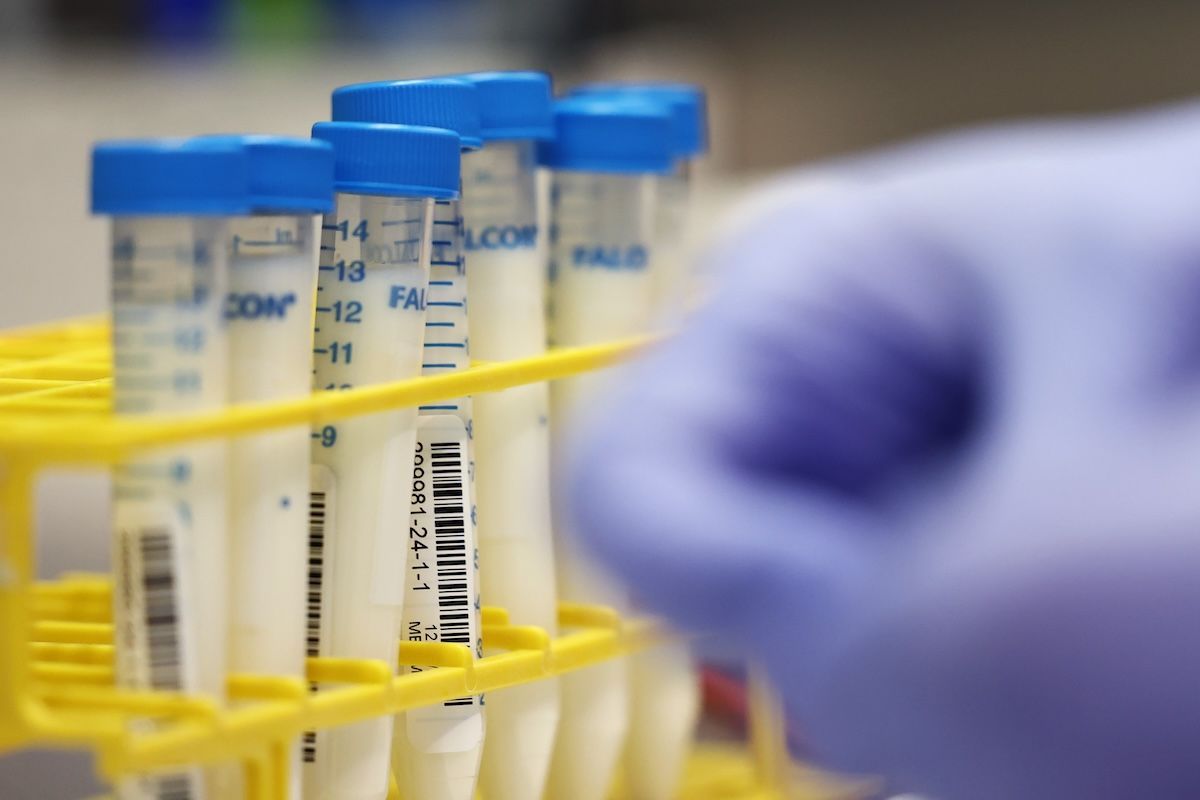In 2024, at least 66 human cases of bird flu have been reported in the United States, each one raising the risk of another pandemic like COVID-19. So far, most cases have been described as “mild,” which means they weren't hospitalized. No patients have died, though infections years ago had a very high mortality rate. Symptoms have typically included pink eye, but not serious respiratory distress.
However, a patient recently made headlines in Louisiana for being a more severe case. The patient, who is reportedly over the age of 65, was hospitalized and in critical condition due to severe respiratory symptoms.
Last week, the U.S. Centers for Disease Control and Prevention (CDC) said a genetic analysis suggests the virus mutated inside the patient to possibly make it a more severe illness in humans. The agency called the mutation “concerning,” as it may allow the virus to better bind to receptors in humans' upper airways. This would make it easier to jump from person to person, sparking major outbreaks or even a pandemic. However, the public health agency said that the risk to the general public from the outbreak “has not changed and remains low.”
The CDC also stated that these mutations have not been detected in the bird flock that infected the patient, which would make the situation “more concerning.”
“These changes would be more concerning if found in animal hosts or in early stages of infection (e.g., within a few days of symptom onset) when these changes might be more likely to facilitate spread to close contacts,” the CDC said in its report. “Notably, in this case, no transmission from the patient in Louisiana to other persons has been identified.”
"If that’s not detected and starts spreading in the human population, that’s a very good way to have a pandemic start out of this."
Still, every additional human case gives H5N1 more opportunities to adapt. As a study found earlier in December, it will only take one single mutation to make bird flu much worse. Out of the 66 human cases of bird flu that have been reported in 10 states, including some without reported outbreaks, all but two stem from exposure to either cows or poultry. Human-to-human transmission could be occurring undetected, but so far there is no hard evidence of such transmission.
In an interview with Intelligencer, Dr. Angela Rasmussen, a virologist at the Vaccine and Infectious Disease Organization at the University of Saskatchewan noted that these exact viral mutations have been seen in bird flu before, nearly two decades ago. The more concerning aspect of the emerging crisis, she said, was how the number of human cases keeps rising.
"Even though this particular virus from this particular case isn’t a huge concern in terms of onward transmission, if we’re having human cases tick up and up and up, we’re going to give the virus more chances to develop mutations," Rasmussen explained. "And if that’s not detected and starts spreading in the human population, that’s a very good way to have a pandemic start out of this."
Rasmussen also underlined the risk of reassortment — the potential for H5N1 to swap genes with human influenza virus, which could supercharge the spread of the pathogen. "That’s essentially like shuffling two decks of cards together, ending up making new viruses that have a combination of segments from both of the viruses that were infecting the person. That can lead to really, really rapid evolutionary jumps and rapid adaptation to a new host," she said.
Want more health and science stories in your inbox? Subscribe to Salon's weekly newsletter Lab Notes.
Over the weekend, Dr. Leana Wen, the former Baltimore health commissioner, told "Face the Nation with Margaret Brennan," that the United States should have learned its lesson from the COVID-19 pandemic.
"We should be having rapid tests, home tests, available to all farm workers, to their families, for the clinicians taking care of them, so that we aren't waiting for public labs and CDC labs to tell us what's bird flu or not," she said. “We have 66 cases of bird flu in humans, and this is almost certainly a significant undercount, because we have not been doing nearly enough testing.”
She also urged the Biden administration to approve the H5N1 vaccine.
“There's research done on it,” she said. “They could get this authorized now, and also get the vaccine out to farm workers and to vulnerable people.”
As Salon previously reported, public health experts aren’t optimistic the incoming Trump administration will handle the bird flu situation any better.
“If the Biden administration is not doing a good job, you can only imagine when you have certain individuals who are much more hostile towards these types of government action, it will get worse,” Dr. Amesh Adalja, an infectious disease and senior scholar at Johns Hopkins Center for Health Security, told Salon.



Shares